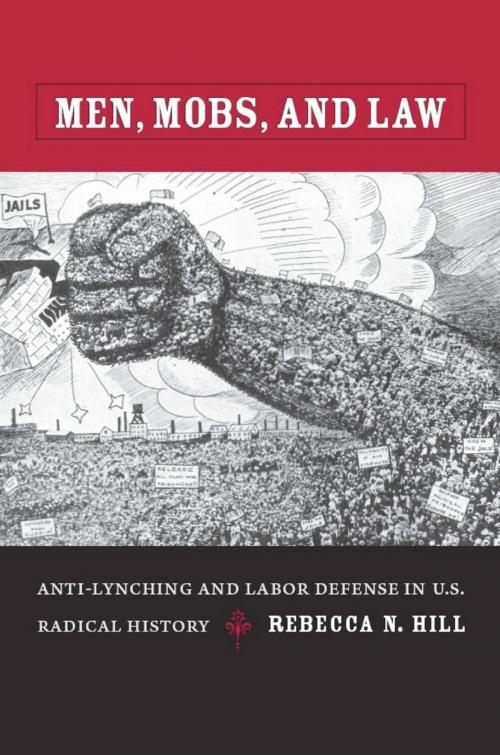Men, Mobs, and Law
Anti-Lynching and Labor Defense in U.S. Radical History
Nonfiction, Social & Cultural Studies, Political Science, Politics, Labour & Industrial Relations, History, Americas, United States, 20th Century| Author: | Rebecca Hill | ISBN: | 9780822381464 |
| Publisher: | Duke University Press | Publication: | January 23, 2009 |
| Imprint: | Duke University Press Books | Language: | English |
| Author: | Rebecca Hill |
| ISBN: | 9780822381464 |
| Publisher: | Duke University Press |
| Publication: | January 23, 2009 |
| Imprint: | Duke University Press Books |
| Language: | English |
In Men, Mobs, and Law, Rebecca N. Hill compares two seemingly unrelated types of leftist protest campaigns: those intended to defend labor organizers from prosecution and those seeking to memorialize lynching victims and stop the practice of lynching. Arguing that these forms of protest are related and have substantially influenced one another, Hill points out that both worked to build alliances through appeals to public opinion in the media, by defining the American state as a force of terror, and by creating a heroic identity for their movements. Each has played a major role in the history of radical politics in the United States. Hill illuminates that history by considering the narratives produced during the abolitionist John Brown’s trials and execution, analyzing the defense of the Chicago anarchists of the Haymarket affair, and comparing Ida B. Wells’s and the NAACP’s anti-lynching campaigns to the Industrial Workers of the World’s early-twentieth-century defense campaigns. She also considers conflicts within the campaign to defend Sacco and Vanzetti, chronicles the history of the Communist Party’s International Labor Defense, and explores the Black Panther Party’s defense of George Jackson.
As Hill explains, labor defense activists first drew on populist logic, opposing the masses to the state in their campaigns, while anti-lynching activists went in the opposite direction, castigating “the mob” and appealing to the law. Showing that this difference stems from the different positions of whites and Blacks in the American legal system, Hill’s comparison of anti-lynching organizing and radical labor defenses reveals the conflicts and intersections between antiracist struggle and socialism in the United States.
In Men, Mobs, and Law, Rebecca N. Hill compares two seemingly unrelated types of leftist protest campaigns: those intended to defend labor organizers from prosecution and those seeking to memorialize lynching victims and stop the practice of lynching. Arguing that these forms of protest are related and have substantially influenced one another, Hill points out that both worked to build alliances through appeals to public opinion in the media, by defining the American state as a force of terror, and by creating a heroic identity for their movements. Each has played a major role in the history of radical politics in the United States. Hill illuminates that history by considering the narratives produced during the abolitionist John Brown’s trials and execution, analyzing the defense of the Chicago anarchists of the Haymarket affair, and comparing Ida B. Wells’s and the NAACP’s anti-lynching campaigns to the Industrial Workers of the World’s early-twentieth-century defense campaigns. She also considers conflicts within the campaign to defend Sacco and Vanzetti, chronicles the history of the Communist Party’s International Labor Defense, and explores the Black Panther Party’s defense of George Jackson.
As Hill explains, labor defense activists first drew on populist logic, opposing the masses to the state in their campaigns, while anti-lynching activists went in the opposite direction, castigating “the mob” and appealing to the law. Showing that this difference stems from the different positions of whites and Blacks in the American legal system, Hill’s comparison of anti-lynching organizing and radical labor defenses reveals the conflicts and intersections between antiracist struggle and socialism in the United States.















